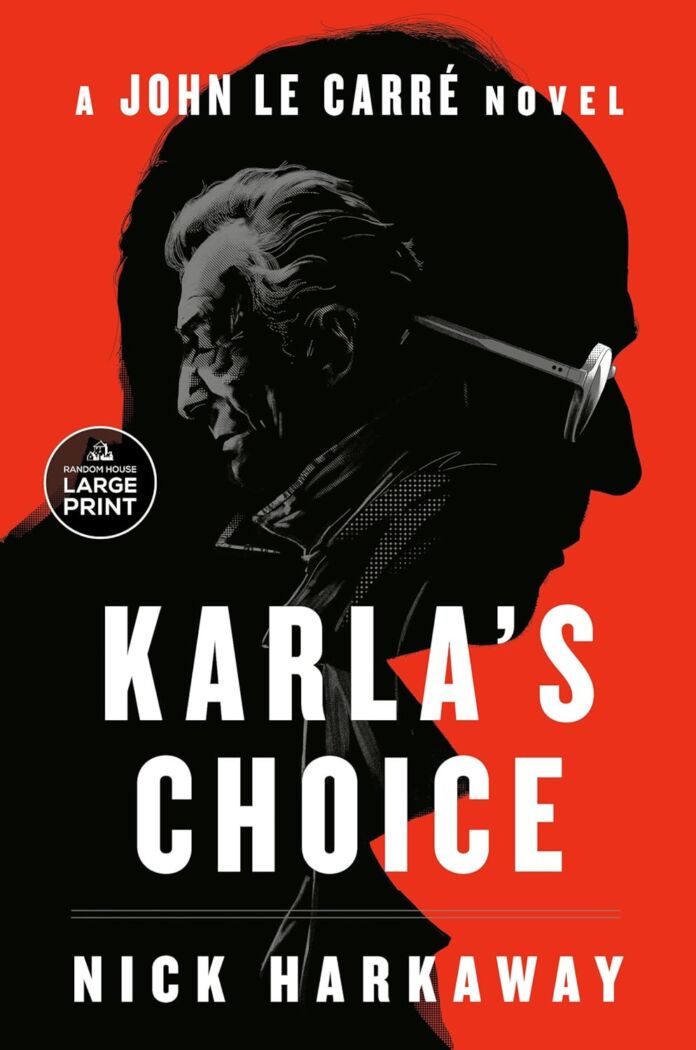In the intricate world of espionage fiction, few names loom as large as John le Carré’s. His creation, George Smiley – the quiet, brilliant spymaster who redefined the genre – has become synonymous with sophisticated intelligence warfare. Now, Nick Harkaway steps into this hallowed territory with Karla’s Choice, bridging the gap between The Spy Who Came in from the Cold and Tinker Tailor Soldier Spy. The result is a novel that both honors le Carré’s legacy and charts its own distinct course through the murky waters of Cold War espionage.
The Art of the Impossible
Set in 1963, Karla’s Choice finds George Smiley attempting retirement, a notion as improbable as peace during the Cold War. When a Russian assassin experiences a crisis of conscience before killing his target in London, Smiley is reluctantly drawn back into the game. What begins as a simple interview with Susanna Gero, a Hungarian émigré working for the intended victim, evolves into a complex chase across Europe, leading Smiley toward a confrontation with his greatest adversary: the enigmatic Soviet spymaster Karla.
Masterful Character Work
Harkaway’s greatest triumph lies in his handling of the established characters. His Smiley is immediately recognizable – the shrewd, methodical intelligence officer whose physical unremarkability masks a formidable mind. Yet Harkaway adds new layers to this familiar figure, exploring Smiley’s relationship with Ann with fresh insight and poignant vulnerability.
The new characters are equally well-drawn. Susanna Gero emerges as a compelling addition to the canon, her journey from office worker to active participant in international espionage both believable and emotionally resonant. The tragic figure of Tom Lake, the Scalpel operative whose sacrifice anchors the novel’s moral center, demonstrates Harkaway’s ability to create characters worthy of le Carré’s universe.
Style and Structure
Narrative Craftsmanship
Harkaway’s prose style shows remarkable versatility. He captures le Carré’s trademark precision and moral complexity while introducing his own distinctive voice. The result is a narrative that feels both familiar and fresh:
- The tradecraft details are meticulously rendered
- The political machinations are intricate but never confusing
- The personal stakes remain high throughout
- The moral ambiguity is handled with sophistication
Pacing and Tension
The novel maintains excellent momentum, alternating between methodical investigation and bursts of intense action. The escape sequence through Budapest demonstrates Harkaway’s ability to write gripping set pieces while maintaining the cerebral nature of the story.
Thematic Depth
The Weight of Loyalty
Like the best of le Carré’s work, Karla’s Choice explores the personal cost of loyalty—to country, to ideology, to family. The parallel stories of Róka seeking his son and Smiley trying to save his marriage illuminate the sacrifices demanded by both personal and professional commitments.
Moral Complexity
The novel grapples with questions of means and ends, individual conscience versus institutional imperatives. Harkaway resists easy answers, presenting a world where even the most righteous actions can have devastating consequences.
Areas for Improvement
While largely successful, the novel has some minor shortcomings:
- The pacing occasionally slows in the middle sections
- Some of the Budapest sequences could be tighter
- A few plot points rely heavily on coincidence
- The resolution might feel too neat for some le Carré purists
Historical Context and Research
Harkaway’s attention to historical detail is impressive. His portrayal of 1963 Europe—from Vienna’s café culture to Budapest under Soviet influence—feels authentic and lived-in. The political dynamics of the period are accurately rendered without overwhelming the narrative.
Comparison with Contemporary Spy Fiction
Karla’s Choice stands out in modern spy fiction by maintaining the sophisticated character work and moral complexity of le Carré while incorporating contemporary storytelling techniques. It avoids the common pitfalls of both retro-spy fiction and modern thrillers.
Technical Achievement
One of the most remarkable aspects of Karla’s Choice is how seamlessly it fits into le Carré’s established timeline. Harkaway navigates the existing continuity with precision while creating space for his own story.
Legacy and Impact
Contribution to the Genre
Karla’s Choice demonstrates that thoughtful, character-driven espionage fiction remains viable in an era of action-heavy thrillers. It proves that le Carré’s approach to the genre continues to resonate.
Literary Merit
The novel succeeds both as a continuation of le Carré’s work and as a standalone literary achievement. Harkaway’s prose is elegant, his characterization deep, and his themes universal.
Final Verdict
Karla’s Choice is a remarkable achievement that will satisfy both le Carré devotees and newcomers to the genre. Harkaway has managed the near-impossible task of extending a beloved series while maintaining its integrity and adding his own distinctive touch.
Strengths:
- Excellent character development
- Sophisticated plotting
- Strong thematic depth
- Authentic period detail
- Seamless integration with le Carré’s canon
Weaknesses:
- Occasional pacing issues
- Some convenient plot developments
- Might be too complex for casual readers
Recommended Reading
For readers who enjoy Karla’s Choice, consider:
- Harkaway’s previous works: The Gone-Away World, Angelmaker
- Mick Herron’s Slough House series
- Charles Cumming’s Thomas Kell novels
Conclusion
Karla’s Choice is a worthy addition to the Smiley canon and a significant achievement in its own right. Harkaway has crafted a novel that honors its inspiration while establishing its own identity. It’s a must-read for fans of sophisticated espionage fiction and a testament to the continuing vitality of the genre.





